By Personal Views of Moehammad Amar Ma’ruf/Diplomatic Career/Writer of the Book Katulistiwa
Becoming an elderly person is a blessing considering that not all individuals will reach it. As the level of life expectancy increases due to improvements in the quality and healthy lifestyle of an individual/community, the lifespan of a country’s population has the potential to become longer until they reach old age.
When someone becomes elderly, their immune system naturally decreases or is no longer as productive as when they were young. This is described in the main translation of the Al-Quran (Surah Yasin verse 68), which says as you get older your physical and even capacity of remembering change. However, it is very important in maintaining health and productivity during old age until death calls.
Current human civilization is characterized by various technological developments, including health technology. At the same time, various life problems have also emerged and artificial and non-natural processed food/drink products that use preservatives, if not monitored, become a threat to human health. Other challenges also found as threat of climate change will affect communities and families, especially vulnerable groups and the elderly, are increasing. While health facilities and infrastructure in most developing countries are limited or even inadequate.
Also Read: The Forty-Four-Days of Glory: Azerbaijan’s Struggle for Justice and Peace
Based on records from the World Health Organization (WHO), in 2022 the group aged 60 years and above will be around 901 million people and will increase to 1.4 billion people in 2030 and 2.1 billion people in 2050. This increase is unprecedented and will accelerate in the coming decades, especially in developing countries.
Moving on from efforts to overcome threats that can result in a reduction in a person’s life expectancy and in anticipating the dynamics of the uneven demographic bonus in the world and limitation of infrastructure in a country, various social and family development activities are promoted. One of the program is social welfare and health community development program. This program has also become a global agenda for 2030. However, considering the different levels of prosperity of countries in the world, initiatives are still needed that can reduce the negative impact for maintaining the success of life expectancy and prosperous elderly people.
The global program above is principally aimed at the benefit of all age groups, including vulnerable groups and the elderly. This age group is expected to remain a productive group and have and even inherit positive experiences and skills for themselves and their environment.
In connection with the above, since the formation in 1970 of the National Family Planning Coordinating Agency/BKKBN until the formation of the Ministry of Population and Family Development/BKKBN in 2024, the commitment of state administrators has become increasingly integrated. The approach to handling this issue is also pentahalix (multi stakeholder).
Also Read: Palestine Solidarity Month: A Collective Movement for Al-Aqsa and Palestine’s Freedom
In line with the above commitment and as a form of achieving the objectives of the founding of the Indonesian state, Indonesian state administrators and society as part of the global community along with related parties in the field of aging, are open and active in carrying out activities to exchange experiences and even provide learning related to the social welfare and health development program for the elderly. In practice at the national level, there is an elderly education activity known as standard intelligent school education for the elderly organized once a month for 1 year. This activity support the community activities of the elderly that were organized in their respective administration, in the form of empowerment activities and religious enlightenment according to their respective religions so that the elderly have been invited to contribute based on their remaining abilities, experience and expertise in the community environment. In this activity, the term of pioneer partner is also known, which can come from figures from higher education institutions who have actively opened related study centers and also from community leaders, including non-governmental organizations/institutions and the media.
Indonesia’s role was also observed and witnessed by representatives of the World Population Institution (UNFPA) during the ceremonial of graduation activities of Indonesian elderly school last December 2024 and is now being disseminated at other global forum levels. This can be seen when representatives of state administrators and related parties, including higher education institutions, hospital administrators and national non-governmental organizations actively participate in disseminating this program and deliberating to provide the best input and support for this aging issue through the Secretariat of the International Organization for Developing Countries and regional.
In 2025, recent activity has been done to disseminate by Indonesia to share this experience and has attracted the attention of the leaders of international organizations In collaboration with the Technical Training Department at a subsidiary body of the Organization of Islamic Cooperation/OIC as one of the International Organizations of Developing Countries of which Indonesia is a member, namely the Statistical, Economic and Social Research and Training Center for Islamic Countries/SESRIC or the Statistical, Economic and Social Research and Training Center for Islamic Countries. This center was established based on Resolution no. 2/8-E which was adopted by the Eighth Islamic Conference of Foreign Ministers (ICFM), held in Tripoli in May 1977. The Center began its activities in Ankara on 1 June 1978.
This initial virtual discussion activity is held on January 6 2025 at the Respati Indonesia/URINDO University campus, East Jakarta and SESRIC Headquarters in Ankara-Turkey respectively with the theme of Elderly Development in Indonesia. The activity is attended by a number of leaders and staff of SESRIC-OKI as well as the Chancellor of URINDO, the leadership of the Center for Aging Studies and their staff and the author.
Also Read: Hassan al-Turabi: A Controversial Thinker from Sudan
At this virtual meeting, positive appreciation has been expressed by the Director of SESRIC-OIC who stated that this Indonesian program is closely related to world efforts, especially within the scope of membership of the Organization of Islamic Cooperation/OIC, to assist the improvement of the quality of human resources and social development in most members of the Organization of Islamic Cooperation/OIC.
Some of the main things or program that attract and become source of inspiration from Indonesia for SESRIC at the virtual meeting above are concerning on Indonesia’s programs and experience in the field of elderly development conveyed by the Head of the Center for Aging Studies at the CEFAS-URINDO campus, among others are:
a) Community-Based Programs for Elderly: this community-based programs designed to encourage activeness in older people with a focus on integrating older individuals into society. This program has had a positive impact in enabling seniors to remain involved, active and healthy, both in the form of empowerment activities and the dissemination of complementary and interactive experiences and skills.
b) Indonesia’s experience in collaborating with countries or communities in Southeast Asia (ASEAN) by developing a framework to create active participation for the elderly. This interaction is believed to be very in accordance with Islamic cultural considerations as Islamic principles also respect older people.
Also Read: Who Exactly is the RSF Group Shaking Sudan?
In line with the content of the discussion above, the development of this program in Indonesia is also in line with the mission of the leaders of the Organization of Islamic Cooperation, which through its Finance Ministers’ Meeting in December 1973 in Jeddah agreed to the establishment of an Islamic Development Bank headquarters in Jeddah-Kingdom of Saudi Arabia. The main focus of establishing this bank is to give assistance of OIC member countries to improve the social welfare of the member countries. This Bank is also opened its Hub Office in Indonesia since 2016. It is hoped that the existence of this institutions and its function can be synergized.
In the end, the efforts of the relevant parties in Indonesia to advance the welfare and health level of the elderly are an inseparable goal from the noble goals of the founding of the Indonesian state and are in line with Indonesia’s active efforts to help create prosperity for the world.
Hopefully this interaction will provide benefits for Indonesia and the world, and be more sustainable. Wallahu’alam bishowab. (T/RE1/P2)
Mi’raj News Agency (MINA)
Also Read: The Two-State Solution (Palestine–Israel) in Historical Perspective






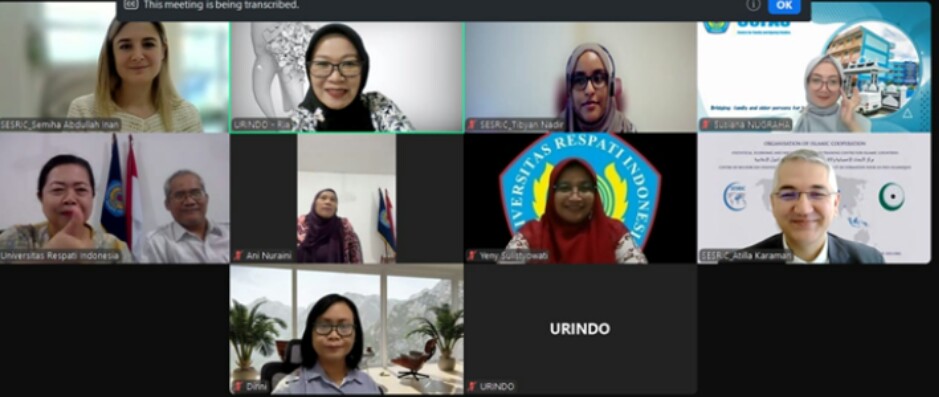



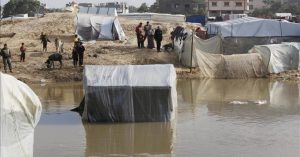
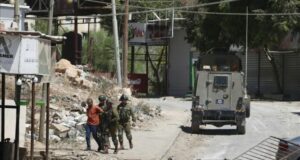




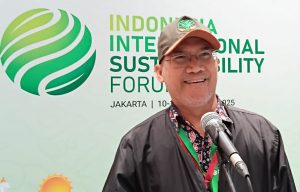
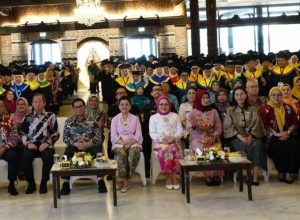
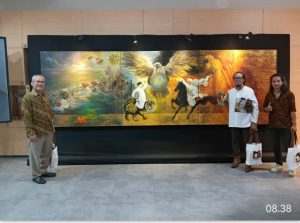
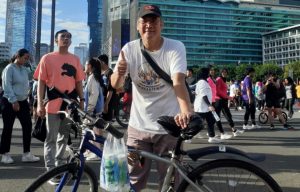
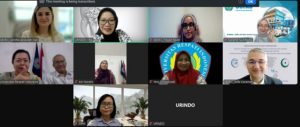
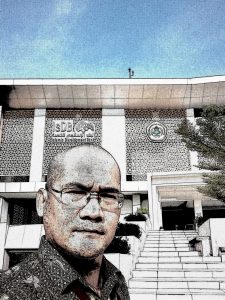











 Mina Indonesia
Mina Indonesia Mina Arabic
Mina Arabic